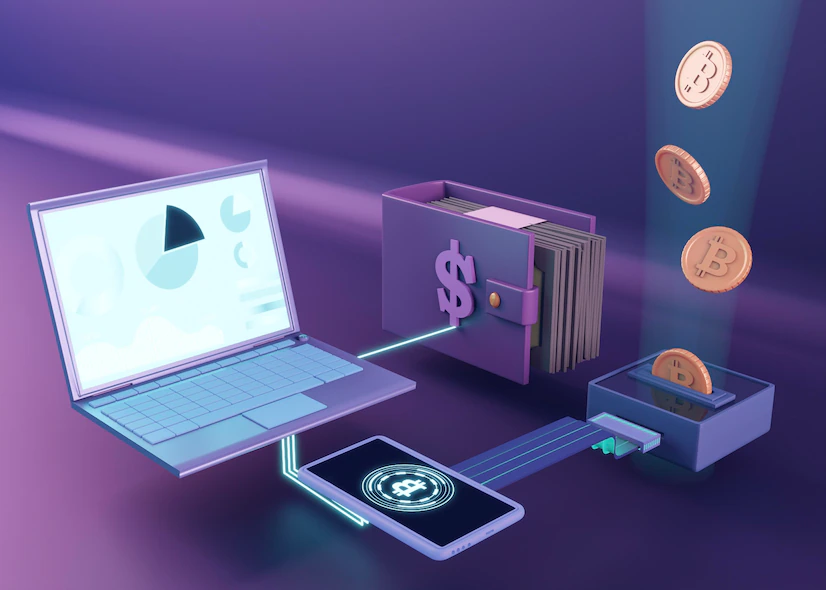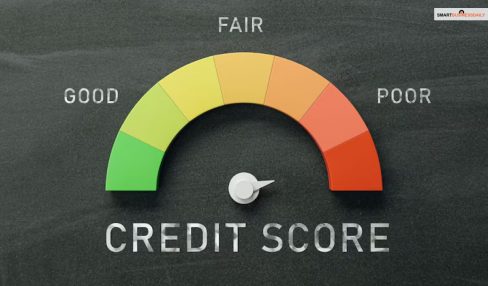The Ultimate Guide To Crypto Wallets: Securing And Managing Your Digital Assets
4 Mins Read
Published on: 07 September 2023
Last Updated on: 09 November 2024

toc impalement
In this digital age, cryptocurrencies have emerged as a new frontier of investment. Riding this wave requires understanding cryptocurrencies and the tools to handle them securely. Central to this is the crypto wallet — your interface to digital assets.
However, the real question that needs answering is, how do you manage and secure these digital assets effectively? This comprehensive guide will walk you through the world of crypto wallets, their security, and the practices you should follow to manage your digital assets safely. Are you ready to embark on this exciting journey?
What Is A Crypto Wallet?
Understanding The Basics
Like a regular wallet, a cryptocurrency wallet is where you store your assets. But this isn’t about tangible money stashed in your leather wallet, how can you do that online? We’re talking about keeping your crypto in a free btc wallet specially designed for digital assets.
Cryptocurrencies exist as codes within a blockchain network, and your crypto wallet manages the keys to access these codes. Does that sound complex? It’s more straightforward than you think.
Types Of Crypto Wallets

Crypto wallets can be broadly classified into two categories: hot and cold. Hot wallets are connected to the internet, providing quick, convenient access to your assets. But remember, with convenience comes a higher risk of potential security threats.
On the other hand, cold wallets are offline storage devices, much like a physical safe for your digital assets. They offer enhanced security but at the cost of instant access. Which one suits your needs better?
Importance Of Crypto Wallet Security
In the burgeoning crypto sphere, security is of paramount importance. Multiple threats, from phishing attacks to keylogging software, lurk around every corner of the internet, ready to snatch away your hard-earned digital assets. Are you aware of these potential threats?
A security breach in your crypto wallet could lead to a complete loss of your digital assets. That could mean saying goodbye to your savings due to a weak password or malware infection — a sobering thought.
Steps To Secure Your Crypto Wallet
Choosing The Right Wallet
Choosing the right wallet for your digital assets is a decision that can significantly influence your security. It’s like picking your home security systems — the safer, the better. Wallets range from hardware to software, mobile to desktop, each with strengths and weaknesses. Are you equipped to make an informed choice?
Understanding Private Keys
Private keys are akin to the keys to your safe. If you lose them, you lose access to your digital assets. If someone else gets hold of them, they gain unauthorized access. As such, the security and management of private keys become highly crucial in safeguarding your digital assets.
Regular Software Updates
Outdated software can be a significant security risk, akin to a rusty lock that’s easy to break. Regular updates keep your wallet software secure and up-to-date, closing any loopholes hackers could exploit.
Two-Factor Authentication
Two-factor authentication (2FA) adds an extra layer of security to your crypto wallet. Think of it as having a door with two locks — it’s much more secure.
Best Practices For Managing Digital Assets

Regular Backups
Backing up your wallet frequently can help you safeguard your assets from any loss due to technical glitches or human errors. It’s like having an insurance policy for your purchases.
Caution With Public Wi-Fi
Using public Wi-Fi to access your crypto wallet can expose your wallet to potential hackers. It’s akin to leaving your front door wide open. Are you cautious when accessing your wallet on public networks?
Use Of Hardware Wallets For Large Holdings
For more extensive crypto holdings, hardware wallets serve as the perfect solution. These are like safety deposit boxes for your digital wealth, providing robust security.
The Future Of Crypto Wallets
Exploring The Technological Advances
As we look towards the future, the world of crypto wallets is poised for groundbreaking technological advancements. These developments are expected to make managing and securing digital assets even more seamless. Let’s see what the future can potentially hold for crypto wallets.
Integrating With Decentralized Finance (Defi)
Decentralized Finance, or DeFi, is an emerging sector in the crypto world that aims to disrupt traditional finance using blockchain technology. Future crypto wallets could offer integrated DeFi applications, allowing users to borrow, lend, or earn interest on their assets directly from their wallets.
Smart Contract Integration
Smart contracts automate transactions when pre-set conditions are met, removing the need for intermediaries. This technology could enable your wallet to automatically manage your assets based on your instructions, much like a digital asset manager.
Increased Interoperability
Interoperability refers to the ability of different blockchain networks to interact with each other. Future crypto wallets allow users to manage multiple types of cryptocurrencies across various blockchains from a single platform, greatly simplifying the user experience.
Enhanced Security Measures
Security will always remain paramount in the crypto world. With the advent of advanced encryption algorithms and biometric authentication, future crypto wallets are expected to offer superior security features to keep your assets safe.
In-Built Tax Management
Given the increasing regulatory oversight on cryptocurrencies, future crypto wallets could feature in-built tax management tools. These could automatically calculate your crypto taxes based on transactions, making tax filing a breeze.
Conclusion
The world of cryptocurrencies is as exciting as it is challenging. While the potential rewards are high, the associated risks cannot be ignored. By thoroughly understanding crypto wallets and employing robust security practices, you can secure your digital assets against potential threats.
As with all investments, the key is to remain informed and proactive, and you’re well on your way to mastering the world of digital assets. Maximize future opportunities by staying up-to-date with these developments!
Read Also:


















Comments Are Closed For This Article